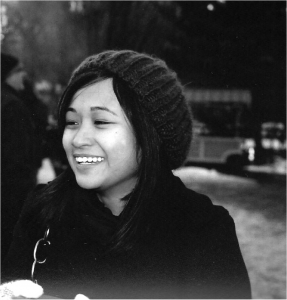When I was in 7th grade I read Stephen King’s The Shining and it terrified me in the best possible ways. A few years later I watched Stanley Kubrick’s adaptation of the novel, and it also scared the bejeezus out of me. While I probably re-read the novel again at some point (I can’t remember), I certainly re-watched the Kubrick movie numerous times in the ensuing years, reveling in the spooky music, the awesome sets, and of course Jack Nicholson’s insanely funny and disturbing performance.
Years later I heard that Stephen King himself was no fan of the Kubrick film. Apparently he found Nicholson’s scenery chewing over-the-top, and he thought the movie didn’t ground the Jack Torrence character as well as the novel did.
Even this film, which is considered one of the most successful book-to-movie adaptations – well, ever – failed to live up to the novel, at least in the author’s mind.
However, King remains in the minority. Most people agree that The Shining is one of the finest horror movies of all time. My belief is that the reason The Shining is a successful movie is because while adapting the novel, Kubrick did what any filmmaker should do: as odd as it may sound, he made a movie, not a book.
In other words, he changed the story so that it translated to the screen. He didn’t try to keep everything the same as it was in the novel. He substituted the topiary animals with a hedge maze. He changed the ending (no spoilers here). He largely skipped the backstory of Jack Torrence and let the Overlook Hotel become the star.
 These days whenever a novel (or series) gets made into a big Hollywood film, I hear people mainly discussing whether or not the movie included everything from the book(s). It’s as if the movie is reduced to a visual checklist, a dumping ground for the events of the novel, and as long as it contains every major scene and keeps all of the characters, etc., then it is deemed a success. Rarely is a movie adaptation judged by its artistic merit. And if it strays from the books (such as adding female elf Tauriel to The Hobbit) then look out: the fan base may be sorely disappointed. This seems to be the tack that Stephen King took toward The Shining.
These days whenever a novel (or series) gets made into a big Hollywood film, I hear people mainly discussing whether or not the movie included everything from the book(s). It’s as if the movie is reduced to a visual checklist, a dumping ground for the events of the novel, and as long as it contains every major scene and keeps all of the characters, etc., then it is deemed a success. Rarely is a movie adaptation judged by its artistic merit. And if it strays from the books (such as adding female elf Tauriel to The Hobbit) then look out: the fan base may be sorely disappointed. This seems to be the tack that Stephen King took toward The Shining.
The problem is this: no film can be a novel. Plain and simple, writing and filmmaking are vastly different mediums, employing vastly different tools to tell their stories. If for instance a person wanted to adapt a painting into a dance, then quite a few creative alterations would be needed. Everyone knows that a painting isn’t a dance, but for some reason there’s a popular belief that a movie is essentially the same thing as a book. All a filmmaker needs to do is to put what’s on the page onto the screen and – voila! – a novel in pictures.
Unfortunately it’s not that simple. And unfortunately, as a teacher of fiction writing, I see all too often the effects of the belief that a movie (or a TV show, or a graphic novel) is the same thing as a novel.
At times I feel like one of those old-fashioned dolls with the pullstring on its back. Again and again during our workshops the string gets pulled and I end up saying, “Tell us what’s going on inside the character’s head. Use point-of-view to tell the story. Use summary. Use your tools.”
That’s because so often these days my students are writing a movie. By this I mean that they assume that whatever they (the writer) see in their minds, we (the reader) will see: the settings, the physical descriptions of their characters, the body language and gestures. On the page, however, the writers provide scant detail, focusing instead on dialogue. The dialogue becomes the main (and often sole) vehicle for showing character motive, backstory, conflict – for giving us the plot. These students, I’m fairly certain, are falling into this trap because it’s how movies do it; it’s what TV does.
Movies and TV, however, use dialogue because they have no other choice. Well, not no choice, but different choices. Visual media depends heavily on dialogue. However, visual media also lets us see the faces of the characters; we see them fidget with their napkins and stare distractedly into space when they’re in business meetings; we see the landscapes that the characters live in.
As writers we must create these landscapes from scratch. Our primary goal is to paint a picture, to immerse the reader in the world we want them to inhabit. And for this, we need words. Our words are our cameras; we need to use them.
Most importantly, fiction has the ability to do something that visual media cannot: It can read minds. It can inhabit a character’s psyche fully. It can probe her memories, her regrets, her desires, her insecurities. It can perform this trick moment-by-moment and line-by-line, putting the readers inside the characters, letting us inhabit them. This is a trick no movie or TV show can pull off, and it’s the reason so many adaptations of novels are ultimately unsatisfying.
As a storyteller, it’s great to draw influences from wherever you can – I’m as big of a movie buff as anyone out there. But if you want to be a writer, then the stories you should be watching . . . are books.

 Interview Editor Marie Lazaro is a senior at Arizona State University. She will be graduating in December from the School of Letters and Sciences with a degree in Literature: Writing and Film. Upon graduating, she plans on broadening her horizons with hopes of writing for TV and movies as well as continuing to find work within the industry of magazines. Originally from New Jersey, she plans on heading back east to New York City to experience the lifestyle and find possible job opportunities before ultimately returning back to Arizona. This is her first semester with Superstition Review.
Interview Editor Marie Lazaro is a senior at Arizona State University. She will be graduating in December from the School of Letters and Sciences with a degree in Literature: Writing and Film. Upon graduating, she plans on broadening her horizons with hopes of writing for TV and movies as well as continuing to find work within the industry of magazines. Originally from New Jersey, she plans on heading back east to New York City to experience the lifestyle and find possible job opportunities before ultimately returning back to Arizona. This is her first semester with Superstition Review.

